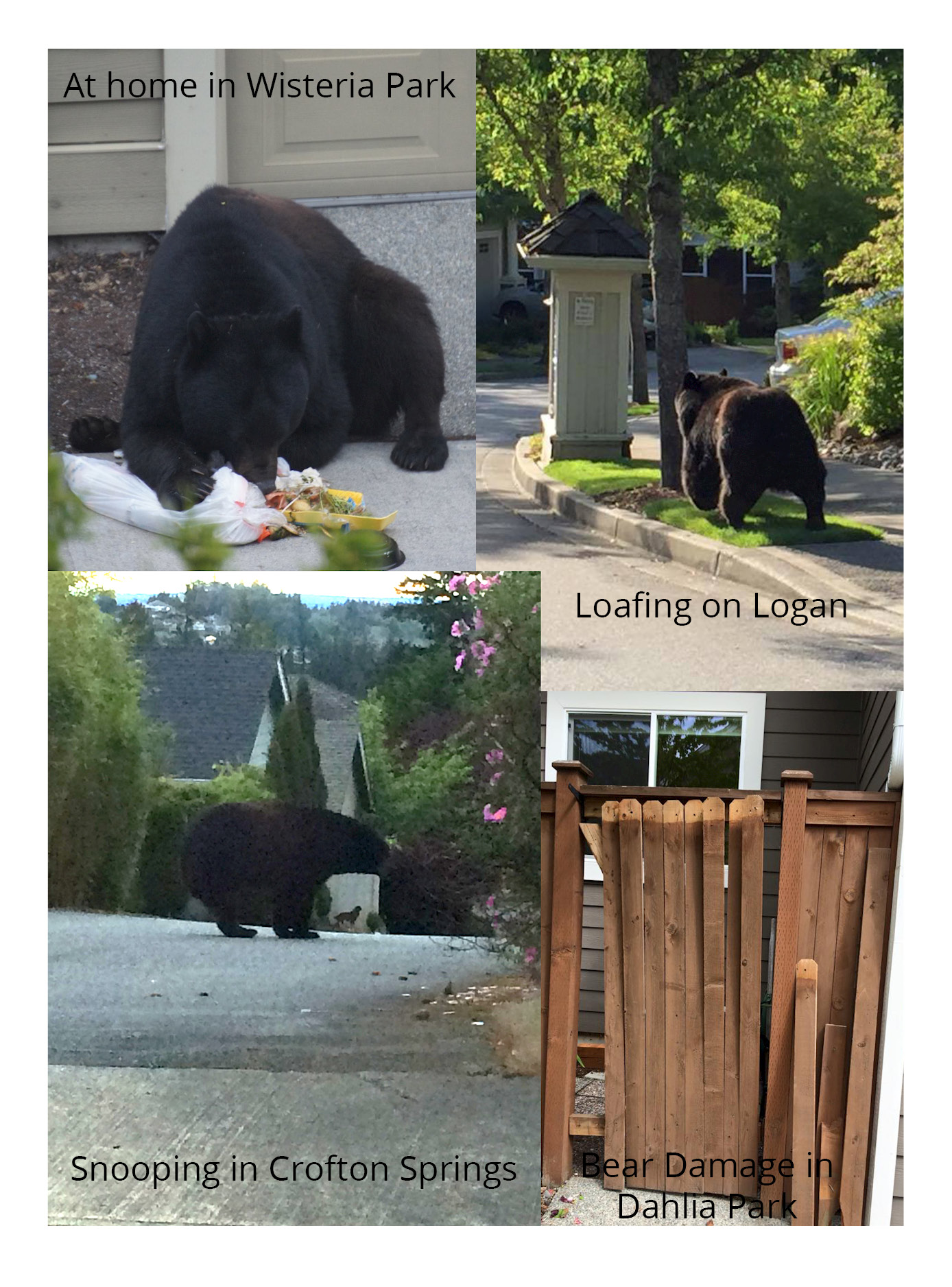
Be Bear Aware: Many Sightings in Issaquah Highlands
Our state wildlife managers would like to remind us how to avoid conflicts with bears.
Rich Beausoleil, bear and cougar specialist for the Washington Department of Fish and Wildlife, said the department has already received reports of black bear activity in King and Chelan counties and coastal areas.
“Black bears usually start making appearances in mid-to-late April, but warm weather can cause them to stir earlier,” he said. “Black bears are hungry when they emerge from their dens, because they lose up to half of their body weight during hibernation.”
“Natural foods are scarce this early in the year, so bears often start looking for the easiest source of high-protein food,” he said.
For that reason, Beausoleil strongly recommends that people take steps to avoid attracting black bears to their homes. Particularly in areas known to attract bears, that means securing garbage cans, removing backyard bird seed and not leaving pet food outdoors.
“By following these three steps to deter bears, we can reduce the number of bear-human conflicts significantly,” Beausoleil explains.
Two state laws prohibit leaving food or food waste in places where it can attract bears and other wild carnivores. Unintentionally or “negligently” feeding bears can bring a fine of $87, while the fine for intentional feeding can be as much as $1,000.
Human conflicts with bears tend to subside by mid-summer, when berries and other natural foods become available, and then pick up again in fall before the animals enter their dens.
Beausoleil advises taking the following steps to prevent conflicts with bears:
- Never intentionally feed bears or other wild animals.
- Keep garbage cans in a garage or another secure area until collection day.
- Remove pet food from areas accessible to wildlife.
- Take down bird feeders until winter.
- Thoroughly clean barbecue grills after each use.
- When camping, keep a clean campsite by thoroughly cleaning all cooking utensils after use and sealing uneaten food in airtight containers stored in bear-proof canisters away from sleeping areas.
Story courtesy of City of Issaquah Department of Communications.





